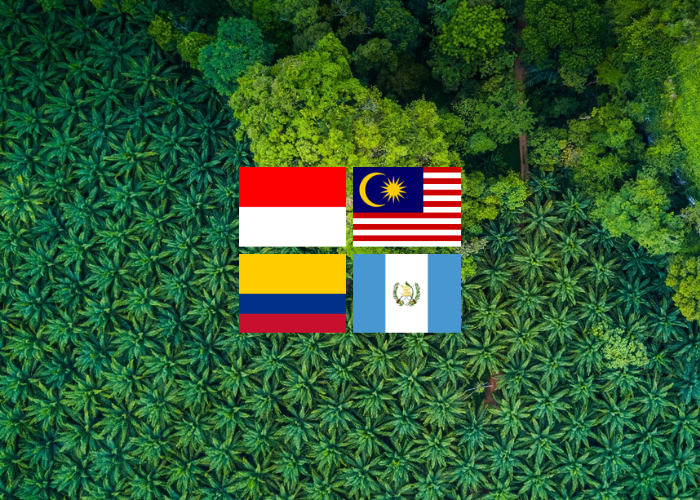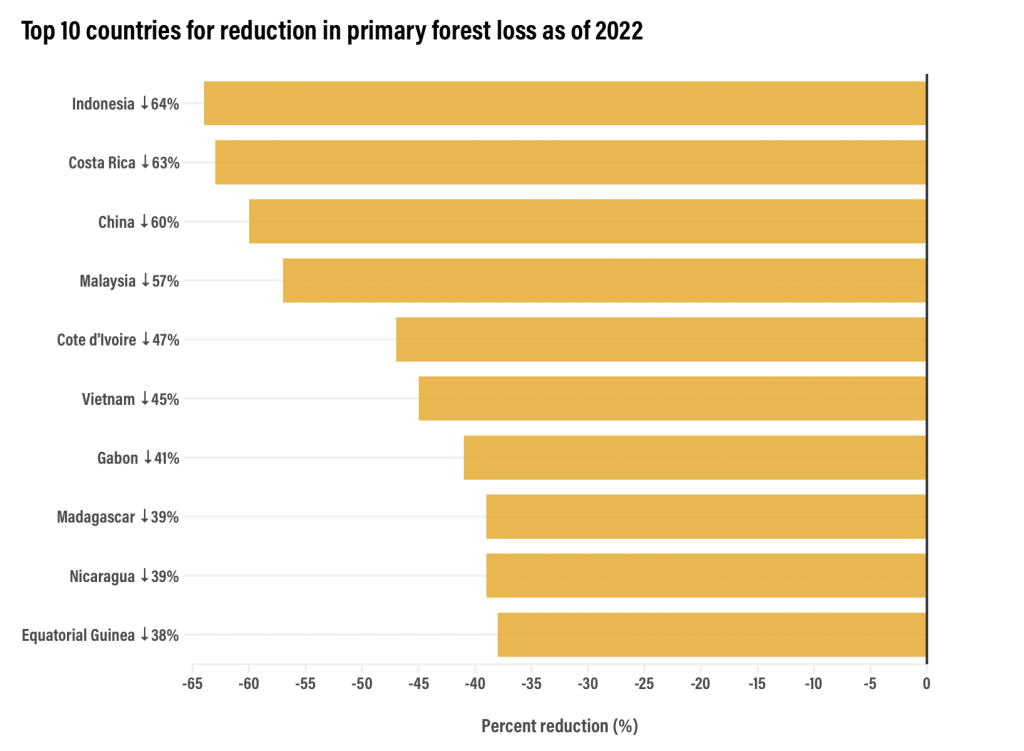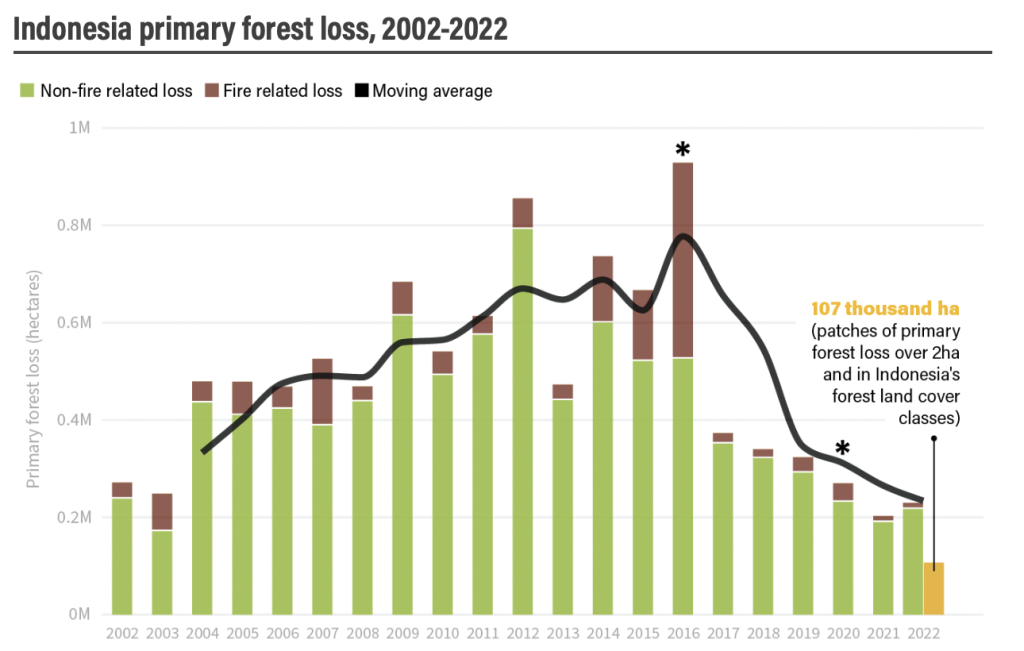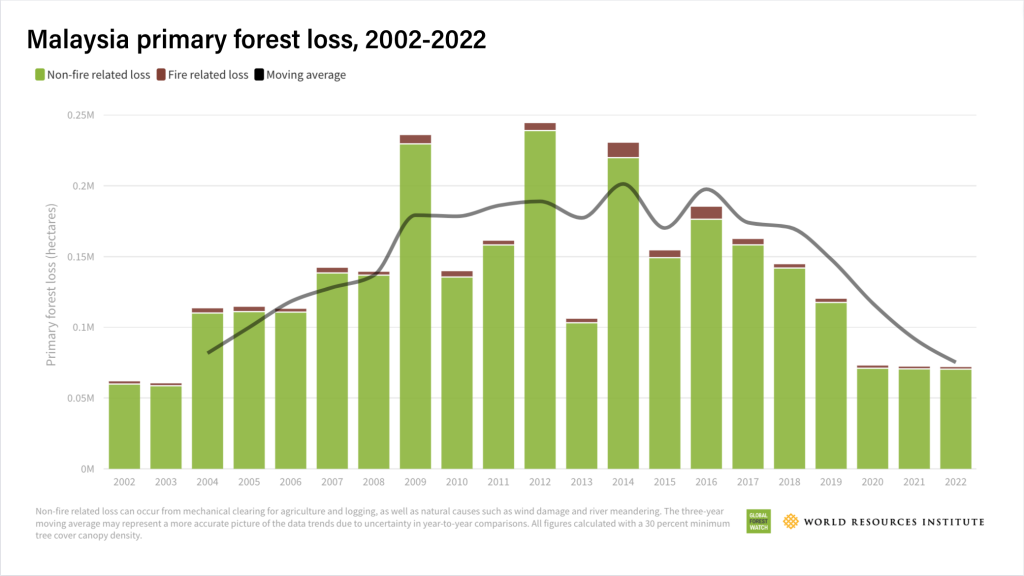Progress and Promise: Palm Oil Sector as a Zero-Deforestation Role ModelBY ALVARO CORONA
- 4 July 2023
- Posted by: Competere
- Categories: highlights, News, Sustainable Nutrition


Despite these benchmarks and the commitment made by world leaders to pursue sustainable development and halt forest loss by 2030, worldwide there has been an increase in primary rainforest loss. Based on new data from the World Research Institute (WRI), it has been revealed that global primary rainforests in tropical regions experienced a worrisome 10% decline from 2021 to 2022. This 10% accounts for an astounding 4.1 million hectares. The countries that have experienced the highest loss of primary forests are Brazil and the Democratic Republic of the Congo.
THE TREND OF PALM OIL PRODUCING COUNTRIES

Both mandatory and voluntary corporate engagements are playing a pivotal role in driving positive change. The corrective actions employed through Indonesia’s negative CO2 emissions target by 2030, has led to a significant decrease in forest loss. This decrease was made possible by implementing effective fire prevention measures nationwide, as well as a renewed commitment to restore peatlands and rehabilitate mangroves.
Similar commitments in Malaysia have contributed to the 57% decrease in forest loss as of 2022.

The consistent rates observed since 2020 can be attributed to many different factors including, the mandatory certification by the MSPO, which began in the same year. Furthermore, Malaysia has implemented a plantation area cap that extends until 2023 and enacted penalties for illegal logging in 2022.
The adoption of NDPE (No Deforestation, No Peat, No Exploitation) policies by these countries has demonstrated their effectiveness, serving as valuable examples for other nations to learn from. Indonesia and Malaysia have established a benchmark and taken on a positive example that the rest of the world should now strive to emulate.
IMPROVEMENTS SHOWN BY COLOMBIA AND GUATEMALA
Since the year 2009 Guatemala has shown a significant decline on forest loss except for the years of 2016 and 2020. Most noticeably, in the years of 2021 and 2022, Guatemala has shown an all-time low in forest loss since 2002. The country of Colombia is the third largest producer of palm oil and after all-time high rates of deforestation in 2018, Colombia has noticeably lowered the forest loss in 2021 and 2022. The statistics for 2021 and 2022 highlight the ongoing commitment of both Colombia and Guatemala to combat deforestation in recent years.
A GLOBAL BENCHMARK
The palm oil supply chain has in fact become a global benchmark for sustainable efforts. The data presented positive results that producing countries were able to achieve even before the implementation of the EUDR. The combination of these promising statistics allows us to believe that operators and traders will be able to adapt to the full implementation of the EUDR in the next 18 months. This data in combination with the EUDR ensuring that all imported palm oil will not contribute to deforestation means that palm oil free claims will lack legal basis. The palm oil sector is showing great improvements and steps in the right direction to achieve a truly sustainable product. Thus, it is crucial for the media and European institutions to recognize it and act upon this reality.
.
>> Read Palm Oil Sustainability: Responsible Production and consumption <<

